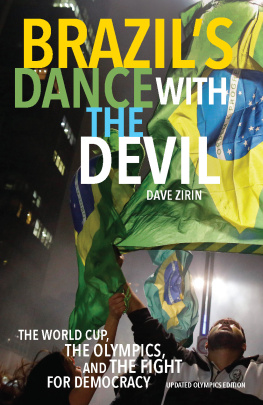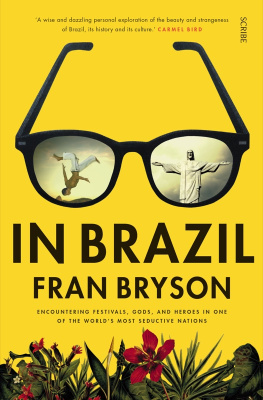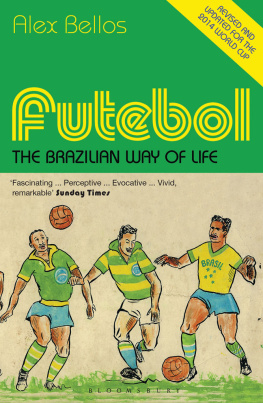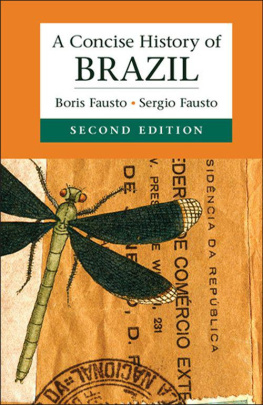Introduction to the 2016 Edition
A major public health crisis is stalking Brazil in advance of the 2016 Olympics. The Zika virus, carried through mosquitos, has created a surge of birth defects, affecting the brains of newborn babies. The virus is thought to have arrived during the 2014 World Cup, from Polynesia, and has nested and found purchase in Brazil because of the climate, a poor public health system crippled by recession, and a substandard system of sanitation. Thousands of babies have already been affected by the Zika virus and that could mushroom into the hundreds of thousands. It has the feel of the Old Testament: disease, locusts, and a punishment from a wrathful God because of hubris, greed, corruption, and pretty much all of the seven deadly sins rolled up into one two-year bacchanalia. Yet for the oligarchs and political elites, who assumed the daunting task of playing host to the World Cup and Olympics in that two-year stretch, the rewards have been manifest. The poor, however, get the plague. It is as if God has gone neoliberal.
Juliana Barbassa, longtime Rio journalist and author of the utterly indispensable book Dancing with the Devil in the City of God: Rio de Janeiro on the Brink (a lot of devil-dancing in Rio) said to me, the
Rio de Janeiro governments response to the spread of Zika has been slow and inadequate; support for families whose babies have suffered from the severe brain damage linked to the virus has been grossly inadequate. The states health care system (like its sewage system, its transportation system, et cetera) was underfunded and under tremendous strain before preparations for the World Cup and the Olympics siphoned away public funds. The additional burden of hosting these mega-events, together with a deep recession and a slump in the price of oil, has created a state of emergency. Hospitals have had to turn away all but the most extreme emergencies. Some even boarded shut their doors. All this raises further questions about the spending goals and priorities of the states and the citys authorities.
But whether one views the crisis as something mystical or enragingly man-made, one fact is certain: the Rio 2016 Olympics will arrive caked in feces. There is the bullshit of broken promises about the benefits that the Games will bringthe kind that accompanies all the Olympicsand then there is the literal shit, long a reality in Rio and now visible to the world. The rivers, streams, and oceans are filled with floating feces, as the raw sewage of the city is, per custom, pumped directly into the water. Even the most pristine-appearing of beaches are, in the words of an Associated Press report, thick with putrid sludge, and periodic die-offs leave the Olympic lake, Rodrigo de Freitas, littered with rotting fish.
This is an Olympic-sized problem, as athletes who participate in open-water sports will carry, in the words of Kristina Mena, an expert in waterborne viruses, an infection risk of 99%.
Austrian sailors who practiced briefly in the Rio waters emerged with violent vomiting, fevers, and diarrhea. Their level of dehydration was so intense they needed IVs after arriving at shore. And these were sailors just practicing. Imagine those who compete in what is called The Olympic Marathon, a 10-kilometer race that requires competitors to spend as much as two hours in the water.
Emily White, cofounder of Dreamfuel and the manager of several elite, Olympic-level swimmers said to me,
There have been countless examples of terrible water conditions for our open-water athletes over the past decade; however, the water analyses coming out of Rio are truly horrifying. Yes, not every sport at the Olympics is on or in water, but clearly the choice in location of the open-water races in Rio did not take the athletes health or safety into consideration. Athletes are the reason the events exist in the first placethey need to be the absolute priority in all decisions made surrounding the races they compete in.
If nothing else, this horror story sheds light on what has been a consistent problem in Rio for decades, and one that has only become more intense as the city has become increasingly wealthy and increasingly unequal. As Barbassa said to me, Rios foul waters are a symptom of larger government inability to meet peoples basic needs.
This is accurate. Brazil is one of the wealthiest nations on earth: a twenty-first-century ascendant power with a nineteenth-century sewage system. One of the cruelest lies of the 2014 World Cup and 2016 Olympics double whammy that was foisted upon Rio is that hosting these international sporting events would provide an opportunity to finally upgrade its waste management system. Yes, the argument was that spending billions in public funds for the World Cup and the Olympics would be a more sensible path toward better sewage treatment than perhaps... just spending billions to upgrade the sewage system. As we are seeing right now in Brazil, the country is slashing costs for the Olympics. But luxury amenities are not being cut. Instead, false promises are madethat bringing the Games will also mean some kind of development that will aid the poor.
The only benefit of the Olympicsand its a benefit born of ironyis that at least we are talking about this constant health risk that has long stalked the people of the city. Yet crediting the Olympics for this is like crediting racist police officers for launching the #BlackLivesMatter movement. Yes, they were a necessary ingredient, but only in the cruelest possible way.
What is particularly noxious is that, with so many pressing needs in Rio, the favelados (people who live in the precarious communities known as favelas) are being blamed: as if the poor having nowhere to send their sewage are just piling it in the river. Actually, its the expansion of Rio, the growth of the massive mega-hotels and gated communities that is creating more waste and the need to pump poop into the waters. That is why some of the citys most beautiful beaches have been abandoned.
These Olympic waters are hazardous for athletes and hazardous for the people of Rio. If there was ever a reason for the social movements of the city resisting the Olympic monolith and the athletes to come together, it should be for that most basic and elemental of rights: clean water. Whether this resistance takes place is an open question. As I will explain in the coming pages, the 2013 protests that swept Brazil presented a historic opportunity to expose the lies that accompany these kinds of mega-events. Yet the protests did not return for the World Cup. But I was there and the reasons they did not return say far more about Brazil and what is required in order to host these games than it does about peoples willingness to fight.
The Banality of Doves
Before the opening game of the World Cup, FIFA, the organization that oversees international soccer, thought it would be a good idea to have three Brazilian children each release a dove of peace. One of those children was Jeguak, a thirteen-year-old boy from Brazils Guarani tribe. Jeguak had the courage to make a political stand in front of seventy thousand soccer fans and what he thought would be an international audience. But even on the highest possible cultural platform practically surrounded by fireworks, sparkles, and a neon sign blaring LOOK AT ME his very presence was still denied.
The Guarani are Brazils largest tribal group. They have also been subject to incredible levels of violence by ranchers who occupy their land for cattle and sugar production. Driven onto reservations where disease and malnutrition are rife, their situation may actually be get- ting worse. The ruling Workers Party is attempting to take away even more of their land, which led to violent confrontationsand dramatic imageson the eve of the World Cup in the capital city of Braslia. The effects on the tribe are brutal. There is poverty, there is infant mortality, and in the Brazilian state of Mato Grosso do Sul, the Guarani-Kaiow, a Guarani subgroup, suffer the highest suicide rate on earth.






